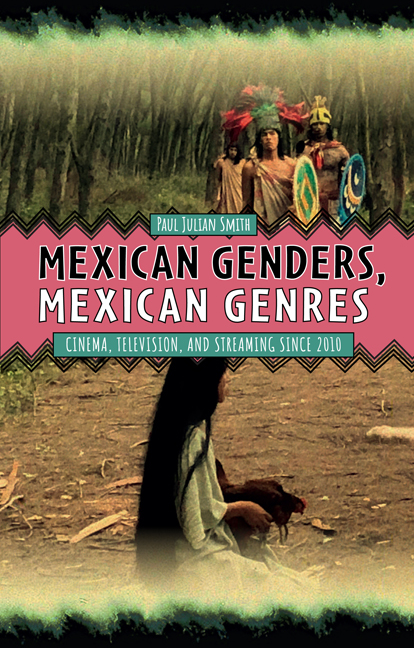6 - Public Television in a Female Key: Historical Drama from Patricia Arriaga Jordán
Published online by Cambridge University Press: 09 February 2021
Summary
FEMINIZING HISTORY IN TELEVISION AND FILM
Malinche is a series created by Patricia Arriaga Jordán for Mexico's public TV channel Canal Once. It premiered in 2018 and was acclaimed by the Mexican press as the most anticipated show of the year (Cueva, “La serie”). The five hour-long episodes (supplemented by a full-length “making-of “ that serves as a sixth installment) track the Spanish Conquest of Mexico and destruction of the Mexica (Aztec) Empire from the perspective of the conquistador Cortés's interpreter. While little is known historically about Malinche, who is generally condemned as a traitor by modern Mexicans (“malinchismo” means to put the interests of another country above one's own), contemporary Spanish sources describe her respectfully as a noblewoman, lending her the honorific title “Doña.” Her Nahuatl name of “Malinzin” equally pays tribute to her high social position. This was in spite of the fact that when Malinche first encountered Cortés she was reduced to the status of a slave. Arriaga intends, then, to reinvest her subject with the respect that she once managed to achieve against all the odds.
Malinche is a real-life figure who was a major actor in history. Indeed, she is often depicted in contemporary drawings as larger in size than Cortés and even lent her name to her supposed master, who was dubbed by the Mexica “El Malinche.” Eye-witness chronicler Bernal Díaz del Castillo, a minor character in the series, wrote at the time that the woman he called “Doña Marina” was the “absolute ruler of the Indians in all of New Spain” and compares her story, of slavery and redemption, to that of Joseph in the Bible (Díaz del Castillo 130). Yet, the legacy of Cortés's translator (described appropriately enough in primary sources as his “lengua” or “tongue”) remains much contested, not least by feminists and nationalists, who have viewed her alternately as either a collaborator or a resistor to a patriarchal and colonial regime. And beyond her role as interpreter, Malinche can also be seen in different lights as being either an honored consort or a victim of rape, bearing Cortés as she did an illegitimate son. Her legacy has also long been explored in the USA by Chicanas.
- Type
- Chapter
- Information
- Mexican Genders, Mexican GenresCinema, Television, and Streaming Since 2010, pp. 139 - 156Publisher: Boydell & BrewerPrint publication year: 2021



